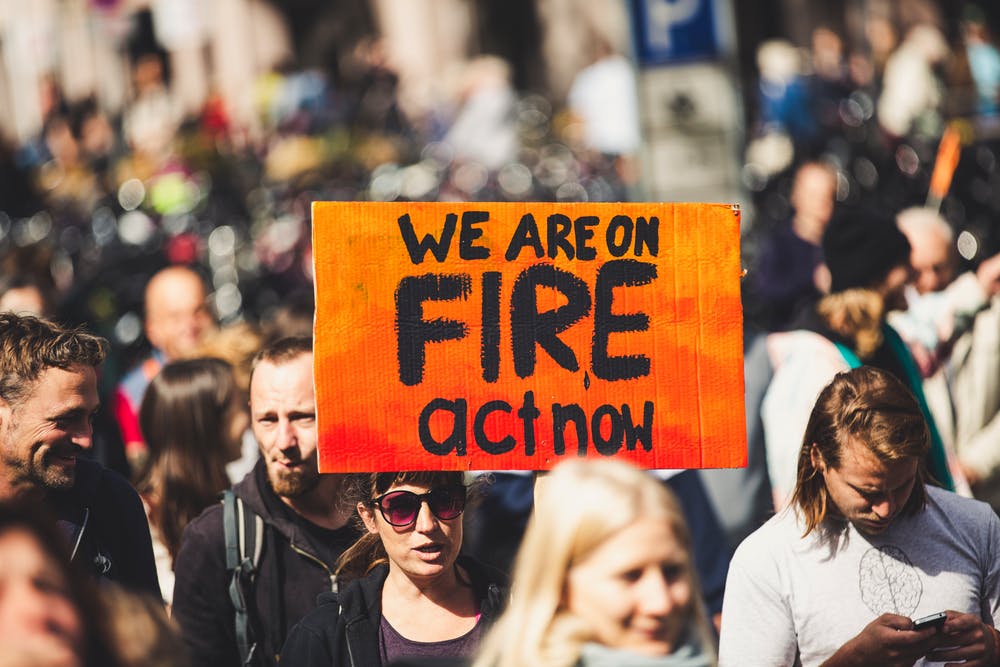New York, December 12 – UN Secretary-General Antonio Guterres sounded the alarm as carbon dioxide, the harmful gas heating up the planet, has reached its highest levels in a decade and he urged world leaders to declare a climate emergency until carbon neutrality is reached.
Guterres said 38 countries have already declared a climate emergency and it will be time for the rest of the world to follow the example as carbon dioxide in the atmosphere is rising, provoking storms, fires, floods and drought of uncommon force.
“I appealed to leaders worldwide to declare a State of Climate Emergency in their countries until carbon neutrality is reached,” Guterres told a virtual Climate Ambition Summit organized by the United Kingdom. Guterres said climate change will be the main focus of the United Nations in 2021 as it seeks to build a truly Global Coalition for Carbon Neutrality and for global net zero emissions of greenhouse gases in 2050.
“There is solid momentum behind the net zero goal,” Guterres said. “By early next year, countries representing two thirds of global carbon dioxide emissions and 70 per cent of the world economy will have made strong commitments to carbon neutrality.”
“As we prepare for next year’s United Nations climate conference – COP26 — we need concrete action right away to get on the right path. The scientific community tells us that to reach net zero by 2050, we need to cut emissions by 45 per cent by 2030 compared with 2010 levels.”
The UN chief said developed countries must meet their commitment to provide $100 billion a year to developing countries by 2020 so they can install measures to mitigate and adapt to climate change. The 2020 target, however, has lagged behind even before the pandemic hit in early 2020.
A report by independent experts issued prior to the virtual meeting on climate change backed Guterres’s renewed call for rich countries to mobilize urgently the $100 billion a year. The report pointed out that the climate crisis is only worsening and the funds needed by poor countries in 2021 and beyond have exceeded the original target of $100 billion.
The new report, “Delivering on the $100 billion climate finance commitment and transforming climate finance,” recommended that grants, which is a lifeline for vulnerable and poorer countries, should be doubled because such grants have declined to around $12 billion in the 2016-2018 period. Another recommendation is to increase the adaptation finance, which the report said is a small share of overall climate finance but it allows poor countries to adapt and build resilience to the ever challenging climate.
“The UN Secretary-General recently called on all donors and multilateral development banks to increase the share of adaptation and resilience finance to at least 50 per cent of climate finance support,” the report said.
The report was drawn from data and analyses generated by the UN Framework Convention on Climate Change, the Organization for Economic Cooperation and Development, as well as from civil society organizations such as Oxfam, among other sources.
It found that the pandemic, which remains an enormous threat, also offers a “one-off, last chance opportunity to restructure economies at the pace and scale that the climate crisis requires by integrating climate action into the economic recovery from Covid-19.”
The virtual Climate Ambition Summit heard dozens of government leaders, including the two co-hosts, the UK prime minister and the president of France, and the two partners, the president of Chile and the prime minister of Italy.
Countries that are most vulnerable to climate change are leading the way in the debate. The UN said Barbados and Maldives want to achieve carbon neutrality by 2030; Fiji, Malawi, Nauru and Nepal remain firm to achieve the goal by 2050.
The UN said the United Kingdom has pledged to cut emissions by 68 per cent by 2030 compared to 1990 and to end external financing of fossil fuel projects.
The European Union has decided to cut its emissions by at least 55 per cent by the end of this decade.
United Nations correspondent journalists – United Nations correspondent journalists – United Nations correspondent journalists United Nations journalism articles – United Nations journalism articles – United Nations journalism articles

